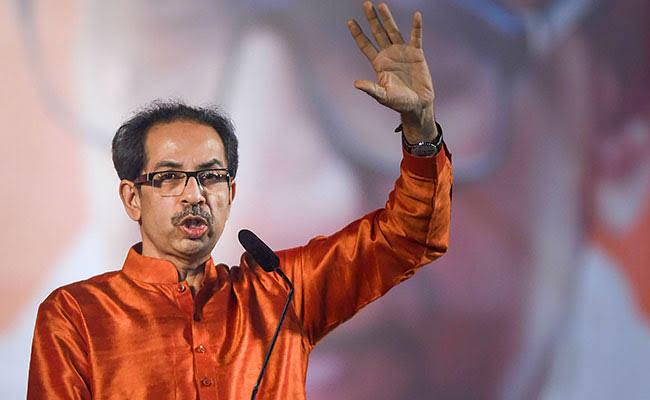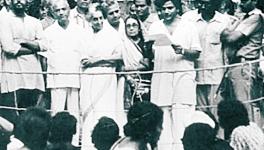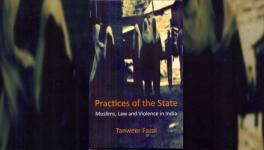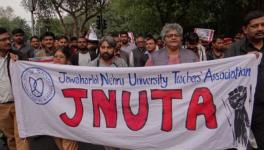Is Maha Govt’s Scheme for Foreign Education of Minorities Helpful?

The Maharashtra state budget presented on March 6 by Finance Minister Ajit Pawar makes provision for a Rs 120 crore scholarship scheme for the foreign education of students from poor sections of minority communities. The total allocation for higher and technical education in the state budget is Rs 1,300 crore.
What the Muslim community in the state has been demanding is 5% reservation in education institutions. Although there was some talk earlier that this proposal would be granted, there is still no certainty. Muslims comprise 11.54% of the state’s population, according to Census 2011. Although the literacy rate in the community is high, at 83%, (it is 81% for Hindus), only 4.9% of the community is represented in graduation and higher levels of education.
A report submitted by the Tata Institute of Social Sciences, Mumbai to the Maharashtra State Minorities Commission in 2011 listed the choice of medium of instruction and high drop-out rates as problems Muslim students faced. Another study that conducted interviews with students reported that many Muslim students felt the cost of higher education was too steep.
The question, however, is: Why would a state government in independent India want to send poor students – whether of the majority or minority communities – for higher education abroad? When Bhimrao Ambedkar travelled to the US and UK for higher education, he did it as he was not allowed equal standing in India by members of the higher castes. His study abroad was funded by a scholarship from the princely state of Baroda, and the scholarship agreement required him to serve the state of Baroda for a period of 10 years on finishing his studies.
In 1917, on a salary of Rs 150 per month, Ambedkar was hired to serve as the military secretary of the princely state of Baroda. Ambedkar had to assume a Parsi name to be allowed residential quarters in a Parsi boarding house in Baroda – his years abroad had lightened his skin and he had assumed the mannerisms that passed for being Parsi. But his true identity was soon discovered and a group of angry Parsis threatened to beat him up.
“On the second day of my stay, when I was just leaving for my office after taking breakfast, a mob of some fifteen or twenty Parsis, armed with lathis accosted me, threatening to kill me and demanded to know who I was. I replied, ‘I am a Hindu.’ But they were not satisfied with this answer. Exasperated, they began to shower abuses on me, and made me vacate the room immediately,” he wrote. All this is described at great length by Narendra Jadhav in his book Ambedkar: Awakening India’s Social Conscience. Finance Minister Pawar proposes in his 2020-21 budget a “chair” at London School of Economics to honour Dr Babasaheb Ambedkar, who studied there 100 years ago.
In offering a scholarship for minority students to study abroad, Pawar is doing what the Modi government has often done in the past – making budgetary provisions for things that the masses have not demanded. Was there any consultation ahead of declarations in the budget?
Nisar Sagar, of the Muslim Chambers of Commerce in Pune, who has supported the call for 5% reservation for Muslims in education institutions in the state said, “Very few students would benefit from the scholarship for higher education abroad. The reservation we seek would benefit many more students, at lesser expense, and encourage social interactions and friendships across communities. The Rs 120 crore allocation is also for all minority groups – there are Christians and Parsis, for instance, who are educationally quite advanced and do not need government support in higher education. To benefit the educationally backward and aim for desirable social change, it would be far better to offer 5% reservation to Muslims.”
US academics Sam Asher, Paul Novosad and Charlie Rafkin, in an analysis of intergenerational mobility in India, wrote: “Our findings imply that virtually all of the upward mobility gains in India over recent decades have accrued to Scheduled Castes and Tribes, groups with constitutional protections, reservations in politics and education and who have been targeted by many development policies.”
What is needed, clearly, is policy measures that target backward groups rather than only individuals within the group. A scheme to support education abroad of students of Scheduled Castes, Scheduled Tribes and Other Backward Classes already exists, and the first of these was introduced by the Centre in 1997. On the Maharashtra government website, data shows a declining number of students benefiting from the allocation for SC students. There were 85 SC beneficiaries in 2012-13, 75 in 2013-14 and 69 in 2014-15, the last year for which data is available. The highest ever allocation for the scheme did not exceed Rs14 crore.
Independent India needs vigorous institutions of learning that foster equality and collegiality; this can be done at much less expense than sending students abroad. Besides, the state government—or indeed the government at the Centre—cannot ensure that students admitted abroad actually get an education worth the expense incurred. There are fake foreign universities that defraud youth seeking to migrate abroad.
The Asher et al paper, first published in 2016, reads: “For non-scheduled groups, there is little evidence that economic liberalization has made it easier to gain in relative status across generations, and for Muslim men these opportunities have substantially deteriorated.”
A report by The Print recently detailed how education abroad was becoming quite the fashion among the people who hold power in India. Of the 56 ministers in PM Narendra Modi’s council, 12 have sent their children to universities abroad. The children of Defence Minister Rajnath Singh, Finance Minister Nirmala Sitaraman, External Affairs Minister S Jaishankar and Law and Justice Minister Ravi Shankar Prasad study abroad.
Geographical borders ought not to constrain the expansion of the human mind. Even in ancient times, scholars travelled vast distances to arrive at universities – whether at Takshashila, in the eighth century BC or the University of Bologna in Italy, established in the year 1088. However, with the availability of the internet, with technological advancement and easier collaboration across the world without much travel, the need for a state government funding rather expensive education of students abroad is questionable. Overseas students studying for a graduate degree in International and Asian History at the London School of Economics are charged over 22,000 pounds, which amounts to over Rs 20 lakh. At just a small fraction of that cost, a student would get fine education that is also more relevant to his or her immediate context, at the Jawaharlal Nehru University in Delhi.
Also read: Muslims in India: Happiest in the World due to Hindus?
Get the latest reports & analysis with people's perspective on Protests, movements & deep analytical videos, discussions of the current affairs in your Telegram app. Subscribe to NewsClick's Telegram channel & get Real-Time updates on stories, as they get published on our website.
























